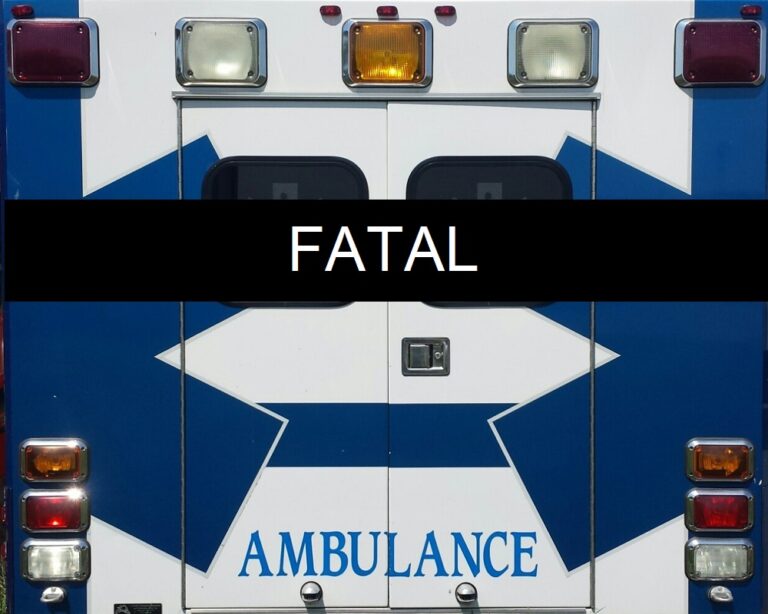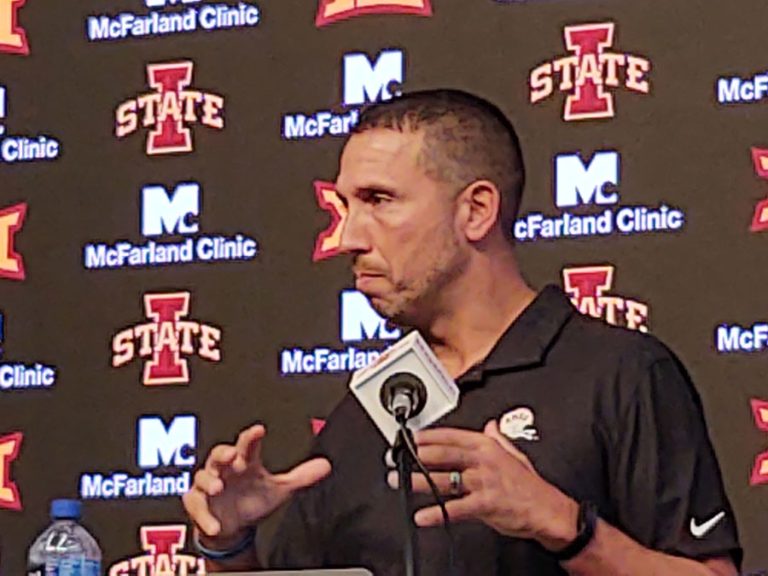Des Moines, Iowa — Three more probable cases of bird flu and one confirmed case are being reported. Two of them are in our area, and the first case from Lyon County has now been reported.

With these new announcements, Iowa now has 49 cases of the disease in the state. The Iowa Department of Agriculture and Land Stewardship has quarantined the premises and once the presence of the disease is confirmed, all birds on the properties will be humanely euthanized to prevent the spread of the disease.
- Buena Vista 14– A layer pullet farm that has experienced increased mortality. An estimate on the number of birds at the site is still pending. Initial testing showed it positive for H5 avian influenza. Additional confirmatory testing is pending from the APHIS National Veterinary Services Laboratories (NVSL) in Ames.
- Buena Vista 15– Turkey farm that has experienced increased mortality. An estimate on the number of birds at the site is still pending. Initial testing showed it positive for H5 avian influenza. Additional confirmatory testing is pending from the APHIS National Veterinary Services Laboratories (NVSL) in Ames.
- Lyon 1– Commercial laying operation that has experienced increased mortality. An estimate on the number of birds at the site is still pending. Initial testing showed it positive for H5 avian influenza. Additional confirmatory testing is pending from the APHIS National Veterinary Services Laboratories (NVSL) in Ames.
- Osceola 4– Broiler farm with an estimated 700 birds that has experienced increased mortality. Confirmatory testing by the APHIS National Veterinary Services Laboratories (NVSL) in Ames showed the birds positive for H5N2 highly pathogenic avian influenza.
As the Department receives final confirmations of the disease updated information will be posted to the Iowa Department of Agriculture and Land Stewardship’s website at www.iowaagriculture.gov/avianinfluenza.asp.
The Center for Disease Control (CDC) and Iowa Department of Public Health considers the risk to people from these HPAI H5 infections in wild birds, backyard flocks and commercial poultry, to be low. No human infections with the virus have ever been detected and there is no food safety risk for consumers.
IOWA CONCERN HOTLINE AVAILABLE TO ADDRESS AVIAN INFLUENZA QUESTIONS
Concerned residents both within and outside the areas affected by avian influenza are encouraged to use the Iowa Concern Hotline at 1-800-447-1985 if they have questions or need disaster counseling. The Iowa Concern Hotline is available 24 hours a day. All calls are free and confidential, and the operators are willing to assist wherever possible.
Iowa State University Extension and Outreach operates the hotline and is partnering with the Iowa Department of Agriculture and Land Stewardship, theIowa Department of Health, Iowa Department of Natural Resources, IowaHomeland Security and Emergency Management Department and Egg Industry Council to provide up-to-date information to Iowans about the disease.
UPDATE ON ACTIVIES OF STATE GOVERNMENT AGENCIES IN RESPONSE TO AVIAN INFLUENZA
Iowa Department of Agriculture and Land Stewardship (IDALS)
- Quarantining all infected sites
- Subject to facilities implementing nationally approved biosecurity measures, the Dept. permits the movement of materials such as feed and other supplies on and off of infected sites
- Leading efforts to monitor poultry within a 10-kilometer circle of each infected site
- Coordinating state communication efforts on the disease
- Working with federal and state officials to ensure the humane depopulation and disposal of all birds from infected sites
Iowa Homeland Security and Emergency Management Department (HSEMD)
- Coordinating partial activation of the State Emergency Operations Center (SEOC) with several state agencies, including the Iowa Departments of Agricultureand Land Stewardship, Public Health, Natural Resources, Transportation, Public Safety, Inspections and Appeals and the Iowa National Guard. USDA, IowaTurkey Federation and Iowa Poultry Association are also present at the SEOC.
- Conducting daily coordination meetings with IDALS, the governor’s office and other partner agencies to bring all up to date, and to discuss planning and needs. Other agencies involved include Iowa Dept. of Public Health, Iowa Dept. of Transportation, Iowa Dept. of Corrections, Iowa Dept. of Natural Resources, IowaDept. of Public Safety, Iowa National Guard, Iowa Dept. of Human Services, IowaDept. of Inspections and Appeals.
- Providing resource support coordination as requested.
- Regularly providing information for situational awareness with county emergency management coordinators.
- Providing support for IDALS communications activities.
Iowa Department of Public Health (IDPH) – in conjunction with local public health officials
- Sharing CDC recommendations on the use of personal protective equipment by persons working directly with sick chickens and carcasses.
- Following up with workers who had direct contact with sick birds without the use of personal protective equipment.
- Providing sound risk information, making sure the public understands that the virus presents no food safety concern or risk to the general public.
Iowa Department of Natural Resources (DNR)
- DNR Air Quality has issued two variances for portable incinerators. The DNR has also issued a variance for a thermal treatment unit.
- The DNR’s primary concern is that disposal methods protect surface water, groundwater and air quality and does not result in further spreading of the AI virus
- Investigating the feasibility and the potential benefits and problems associated with various disposal options including landfilling, composting, incinerating, and burying.
- Looking at potential criteria for emergency air permits if needed for the incineration process.
- Working with contacts at several landfills to determine the ability of those operations to take dead poultry as well as being able to wash and disinfect transport vehicles on site.
- Investigating and maintaining contact with wastewater treatment facilities on the ability to accept and adequately treat leachate produced by any landfill for the AI virus that may take dead poultry.
- Developed solid waste acceptance criteria for landfills willing to accept AI infected poultry.
- Contacted numerous potential sources of wood chips that can be used for composting. The wood chips would be used as part of the composting process. The DNR has issued several variances to facilities to expand wood chipping capacity.
- Preparing maps of infected facilities that show quarantine boundaries and to determine the proximity of other poultry operations and neighbors.
- Investigating the geology involved with operations to determine the optimum potential locations for burial if needed.
- Working with the U.S. Fish and Wildlife Service to conduct sampling of waterfowl for AI.
Iowa Department of Human Services (DHS)
- Communicated to the Disaster Behavioral Health Response Team (DBHRT) that volunteers were needed to assist with damage assessment surveying in the northwest region. Three DBHRT members did volunteer to assist.
- The Division of Mental Health and Disability Services (MHDS) is responding to requests from Buena Vista and Kossuth counties for mental health support; a plan is being structured in collaboration with businesses in Buena Vista and Kossuth counties.
- MHDS is in communication with Iowa Concern staff who are taking calls from people with concerns relating to the Avian flu. If calls are received from people who need additional support, contact will be made to MHDS and a plan will be put in place utilizing either local resources or DBHRT support.
Iowa Department of Transportation (IDOT)
- Water hauling to assist with USDA operations continues.
- Motor Carrier Services has provided a contact number for carriers that are transporting poultry carcasses up to 90,000 lbs to contact them for routing directions; directions are good for 24 hours.
- Districts have applied dust control to gravel shoulders along Highways 3, 17, and 69 in Wright County.
- Established permitting requirements for carriers transporting carcasses up to 90,000 lbs.
- Working to craft messaging to be placed on the 511 and the 511 truckers page as to what to do if drivers will be hauling poultry products in Iowa.
- Contacted Turkey and Poultry Associations to notify counterparts in neighboring states to be aware of Iowa’s travel restrictions of poultry products.
Iowa Department of Public Safety (DPS)
- Providing liaison at Wright County emergency operations center
Background Information
The United States has the strongest Avian Influenza (AI) surveillance program in the world. As part of the existing USDA avian influenza response plans, Federal and State partners as well as industry are responding quickly and decisively to these outbreaks by following these five basic steps: 1) Quarantine – restricting movement of poultry and poultry-moving equipment into and out of the control area; 2) Eradicate – humanely euthanizing the affected flock(s); 3) Monitor region – testing wild and domestic birds in a broad area around the quarantine area; 4) Disinfect – kills the virus in the affected flock locations; and 5) Test – confirm that poultry farms in the area are free of the virus.
The Iowa Department of Agriculture and Land Stewardship in partnership with theIowa Department of Public Health are working directly with poultry workers at the affected facility to ensure proper precautions are being taken.
These virus strains can travel in wild birds without those birds appearing sick. People should avoid contact with sick/dead poultry or wildlife. If contact occurs, wash your hands with soap and water and change clothing before having any contact with healthy domestic poultry and birds.
All bird owners, whether commercial producers or backyard flock owners, should continue to practice good biosecurity, prevent contact between their birds and wild birds, and report sick birds or unusual bird deaths to state/federal officials, either through their state veterinarian at 515-281-5321 or through USDA’s toll-free number at 1-866-536-7593.
Information will also be posted to the Iowa Department of Agriculture and LandStewardship’s website at www.iowaagriculture.gov/avianinfluenza.asp.












